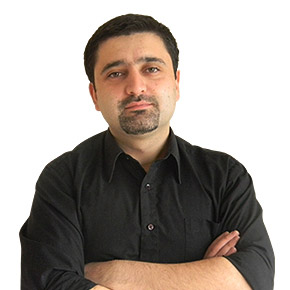Recently, especially after Turkey’s downing of the Russian warplane, mostly the Russian press and analytical cycles were quite actively discussing the possibility of establishment of Independent Kurdistan.
Despite the fact that the Kurdish factor is playing a key role in Turkey and Syria, it is the Iraqi Kurds that are thought to have higher chances for building a statehood; it’s already 10 years that they have gained factual independence in Iraq: the have a government, army and police.
However, even this factual unification has lower chances to grow into a state which is conditioned by not foreign political but domestic peculiarities: all the political and state structures in the Iraqi Kurdistan are formal, are not really established and aren’t on the way of development - and this is one of the major reasons.
Let’s discuss one of the main political institutions of the Iraqi Kurdistan, the government.
Iraqi Kurdistan is led by President Masoud Barzani who doesn’t want to resign after 2 terms in the office - as set by the law adopted by the Kurds - and has been leading de-facto independent Kurdistan for over 10 years. His cousin, Nechirvan Barzani, is the Prime Minister of Kurdistan. Barzani’s uncle, Hoshyar Zaberi, is the Minister of Finance. Barzani’s elder son, Masrour Barzani, holds the post of the Minister of Intelligence. Another son of him, Mansour Barzani, is an army general as well as Barzani’s another brother - Vaji Barzani. The richest man of the country, Sirvan Barzani, is another cousin of Masoud Barzani. And so on and so forth.
Middle East has always had such “family” states and it currently has, but unlike Iraqi Kurdistan, their development path has been different. Either they were originally founded as dynastic states, for instance, Saudi Arabia, or as formal semi-democratic republics, they turned into single-person states as a result of inner centralization. Saddam Husein’s Iraq or Hafez al-Assad’s Syria are 2 vivid examples of such states. But even in these countries, the government and family integration level was not so high as in case of Iraqi Kurdistan.
Unlike the former, the latter isn’t a monarchy, nor was it built on the basis of the existing formal institutions. Vice versa, the so-called “state-building” which should take place simultaneously with the formation of state agencies is based on elimination of the structures which need to be formed.
In political terms, it’s a nonsense situation: building a state by destroying the state structures. That’s something impossible.
However, this is the formal part of the issue. The real life is even more expressive. When the sons of Massoud Barzani, the leader who chose the path of state-building, senior officials, send their wives to the U.S. to give birth there so as the newborns were the U.S. citizens, it’s senseless to talk about long-term state-building plans of the authorities. Moreover, it bears witness to the opposite.
Sevak Sarukhanyan is the Director of Armenian Center for Society Research Foundation.
These views are his own.
























Comments
Dear visitors, You can place your opinion on the material using your Facebook account. Please, be polite and follow our simple rules: you are not allowed to make off - topic comments, place advertisements, use abusive and filthy language. The editorial staff reserves the right to moderate and delete comments in case of breach of the rules.